Youth-centered, collaborative, solutions-oriented
- What’s it like for teens to grow up with today’s tech?
- What are teens facing that adults are missing?
- What do teens most wish adults understood?
For over a decade, our founders have been listening to thousands of youth to answer these questions. In short, we have found that there is a lot that adults are missing about the digital lives of young people. This is why we advocate asking more questions and doing more listening.
We understand more when we ask (rather than assume), listen (while suspending judgment), imagine new directions (together), then synthesize, assess, and iterate.
Our research is youth-centered.
We take inspiration from the founding idea of the Disability Rights movement: nothing about us, without us.
As we imagine and design interventions to realize digital thriving, we need youth voices guiding, informing, and directing us. We strive to embrace co-design with youth from different contexts, backgrounds, and identities. We need to pay special attention to the perspectives of youth with distinct strengths and vulnerabilities, including histories of marginalization. We are aiming for a “design for the margins first” approach.
We believe that disciplinary expertise and existing evidence are hugely valuable, too. In our research and design work, we take guidance from advisory councils that inform and shape what we do (youth advisory especially). This results in translational research, which is research that can directly benefit people and be used in real-world practice.
Our research is collaborative and solutions-oriented.
We practice participatory design which means that research participants become partners and drivers in our research and design process. For us, this means that we include youth, educators, and clinicians at every step. The illustration below shows how our research, connections to literature, and co-design processes are all linked and part of resource creation.
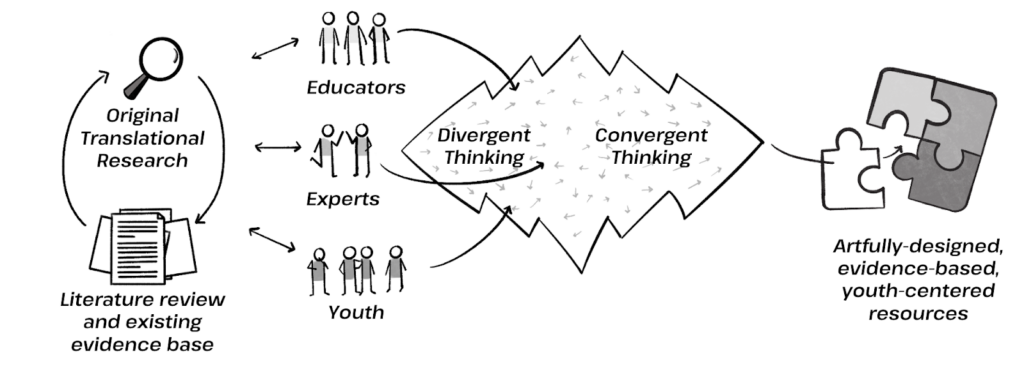
To learn more about our research approach, read our report on teaching digital well-being and explore our ever growing and evolving collection of resources.

Download our first Youth Insights Memo: Ten Fresh Insights on Generative AI to hear directly from our youth advisors about how AI is showing up in their lives — from school and mental health to fashion, friendship, and beyond.
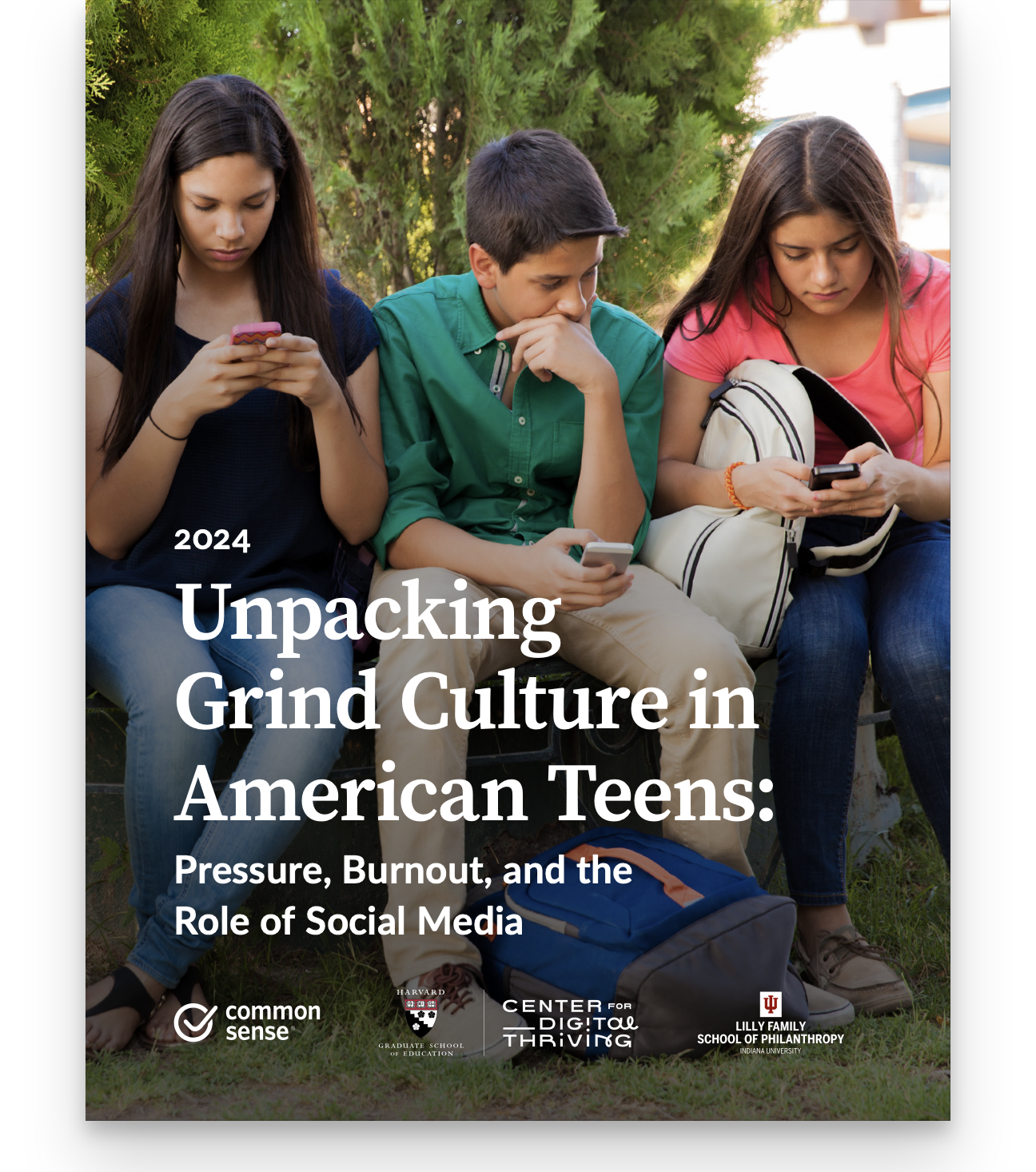
Download our latest report: Unpacking Grind Culture in American Teens: Pressure, Burnout, and the Role of Social Media to learn about the pressures teens face, how burnout affects them, and what adults can do to help.
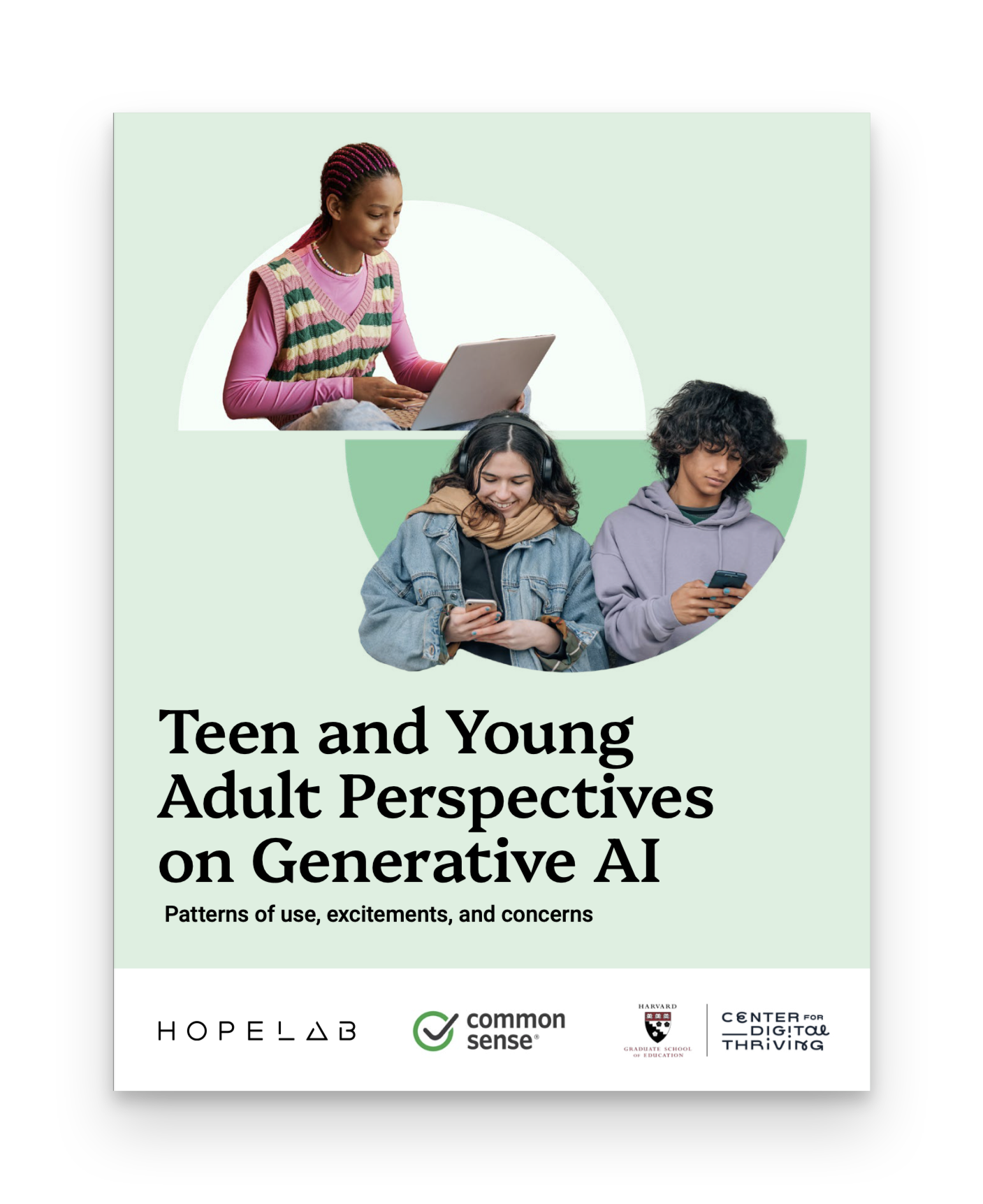
Download our report: Teen and Young Adult Perspectives on Generative AI to learn about what teens want adults to know about how they’re using generative AI.
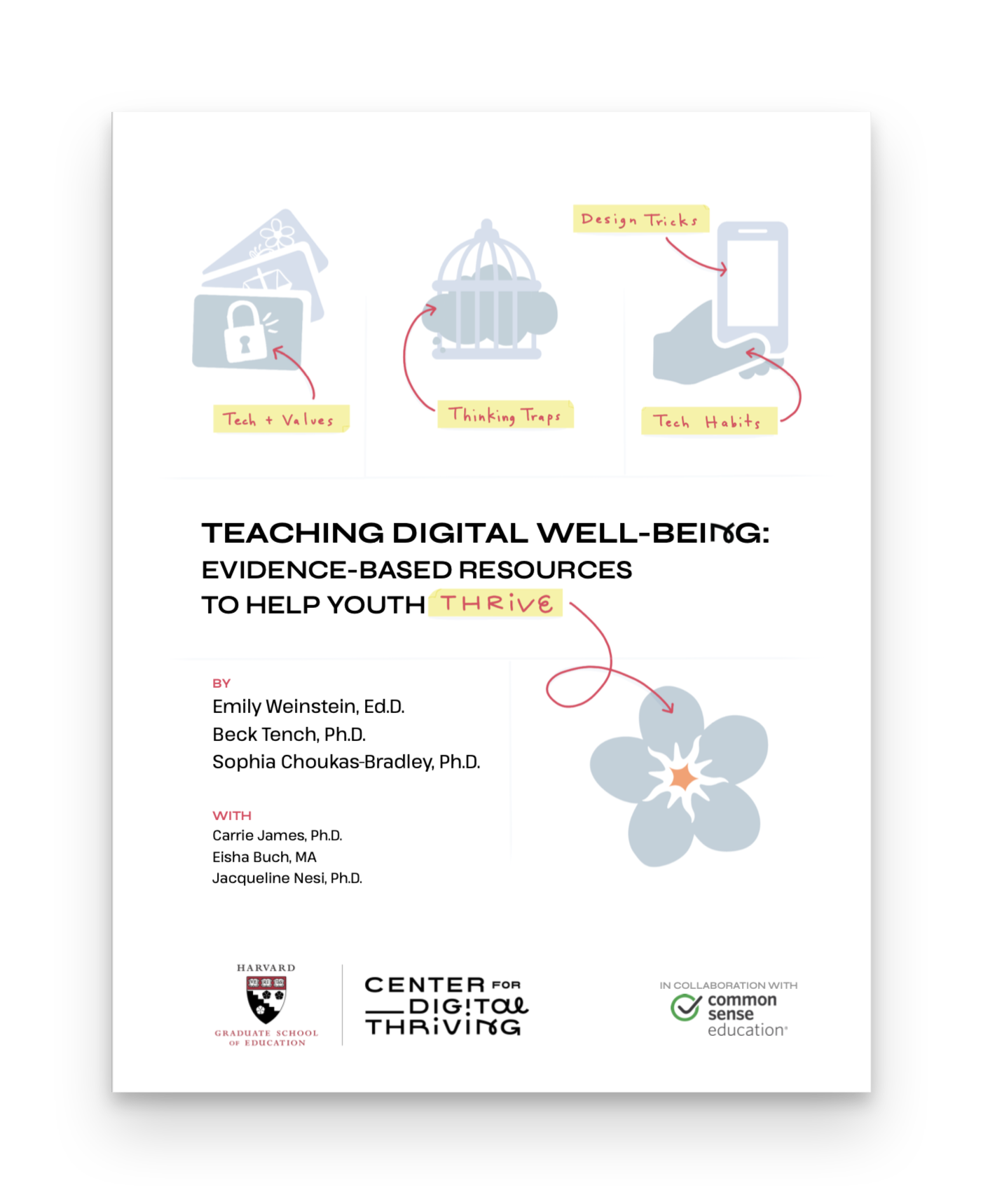
Download our PDF report, Teaching Digital Well-Being to learn more about the evidence behind our resources.
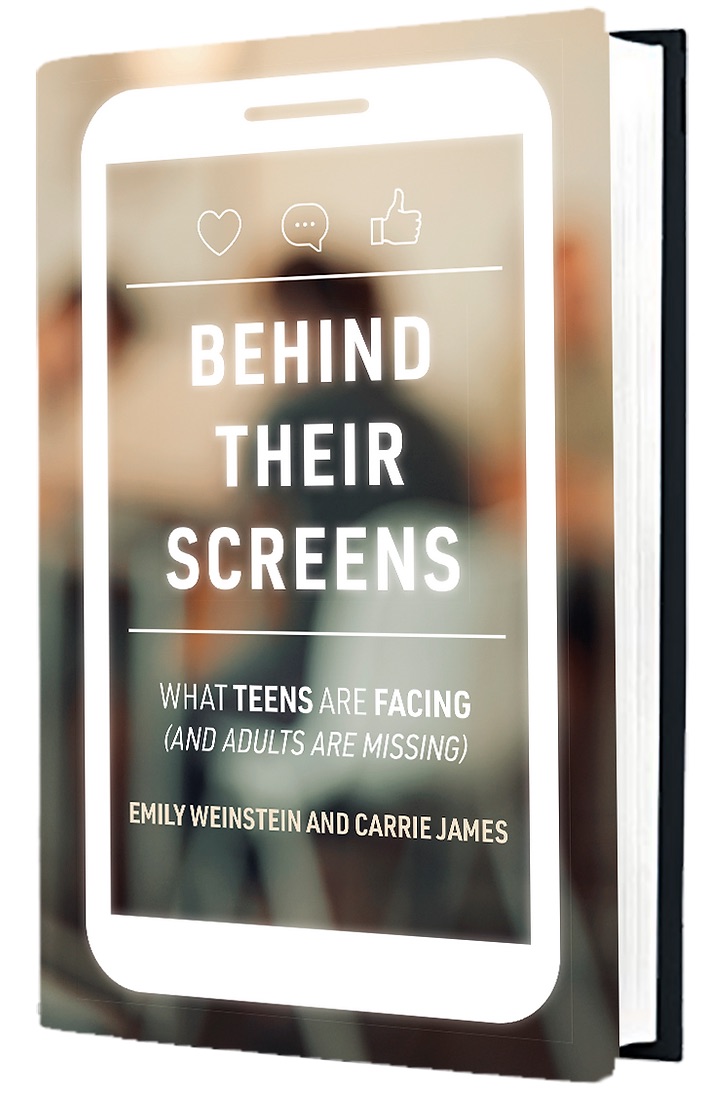
Check out our co-founders’ book, Behind Their Screens: What Teens Are Facing (and Adults Are Missing)
